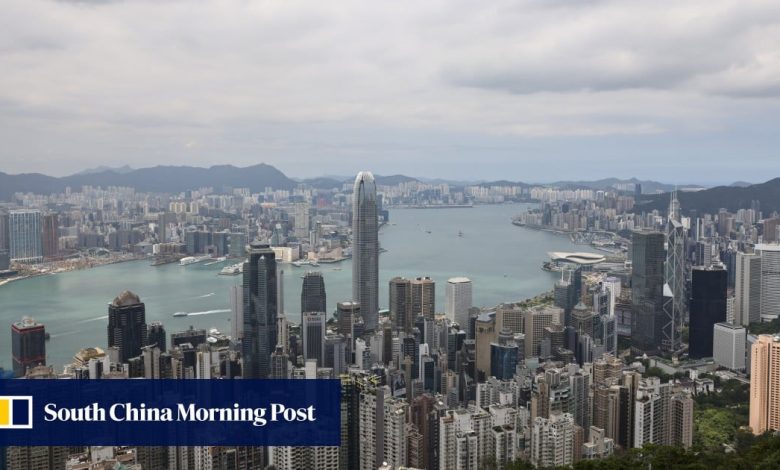Hong Kong Exchange Fund gains US$13 billion in first half of 2024 amid market rallies

Hong Kong’s Exchange Fund, the war chest used to defend the local currency, posted an investment return of HK$104 billion (US$13 billion) in the first half of the year as stock markets rallied globally.
The fund returned HK$41.7 billion in the second quarter, almost a fivefold jump compared with HK$8.4 billion a year ago. The gain is 33 per cent lower than the HK$62.3 billion the fund earned in the first quarter, according to updated data, but is the third consecutive positive quarter after a loss of HK$10.5 billion in the third quarter of 2023.
“Overall, the Exchange Fund registered a decent investment income in the first half of 2024,” said Eddie Yue Wai-man, CEO of the HKMA.
He said the expectation of an interest rate cuts improved market sentiment in Hong Kong and overseas markets.
“In bond markets, despite falling bond prices resulting from rising yields of major government bonds, bond holdings recorded positive returns after interest income was taken into account, as bond yields stayed at a relatively high level,” he said.
The total value of assets decreased by HK$37.9 billion to HK$3.98 trillion over the last six months.
“Looking ahead, factors such as future policy rate paths, global growth outlook and geopolitical tensions will continue to introduce uncertainties to the investment environment,” Yue said.
The Exchange Fund, established in 1935, provides backing to the issuance of banknotes in the city and defends the Hong Kong dollar from attacks by hedge funds and currency traders. The HKMA, the city’s de facto central bank, invests the Exchange Fund in stocks in Hong Kong and abroad, global bonds, overseas real estate and other long-term projects.

The fund’s performance in the second quarter and the first half were due to strong gains from the stock market. The Exchange Fund’s Hong Kong stock investments gained HK$6.6 billion in the first half, turning around from a loss of HK$4.8 billion a year earlier.
The Exchange Fund gained HK$47.8 billion from overseas stock investments in the first half, 1.4 per cent down from HK$48.5 billion a year earlier. The S&P500 index in New York gained 15 per cent during the first half.
The fund’s bond investments in the first half posted a return of HK$57.9 billion, slightly lower than HK$58 billion a year earlier.
The loss from foreign-exchange appreciation on non-US dollar assets came in at HK$16.3 billion in the first half, wider than a HK$1.8 billion loss a year earlier amid a modest gain in the US dollar Index.
The valuation change of the Exchange Fund’s long-term investments in overseas property and other long-term projects in the first three months of this year stood at HK$8 billion, compared with a gain of HK$10.1 billion a year earlier. The HKMA reports the first-half performance of its long-term investments later.
Fee payments to the government’s fiscal reserves amounted to HK$7 billion in the first half, the HKMA said, compared with HK$10 billion a year earlier.
The US Federal Reserve is widely expected to start cutting interest rates in September, although some analysts expect the first cut to come this week.





